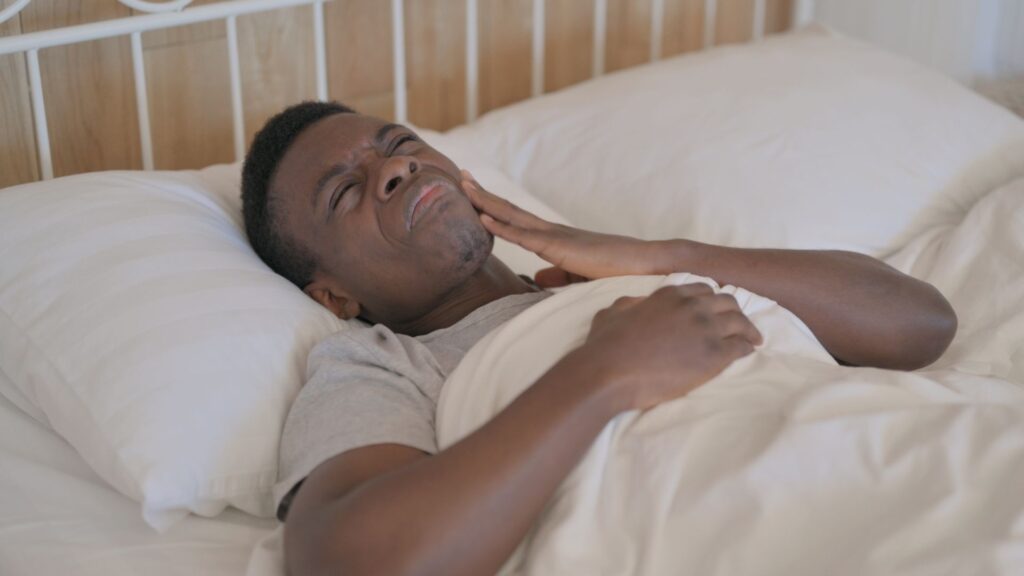
Brushing and flossing twice daily are essential to preventing common dental problems that often lead to emergencies, like cavities, gum disease, or other injuries. However, there’s no guarantee that you won’t develop a toothache at some point despite positive dental hygiene habits.
Unfortunately, many people suffer oral issues outside of regular business hours so you might have to wait overnight or through the weekend to call for help. If you’ve noticed the discomfort seems worse in the evening, continue reading to learn 3 potential causes and how to avoid them!
Consideration #1: Fewer Distractions
You might not think there’s much of a connection between the hours of the day and your dental pain, but the truth is that most people are busier during the day than at night. You can accomplish a lot when the sun shines high in the sky, like going to work or school, exercising, completing chores, watching television, or scrolling on your phone, for example. These active distractions divert your attention away from your dental discomfort, affecting how you perceive its intensity.
After the sun sets and schedules slow down, your brain has more time and capacity to dwell on your toothache. This can give the impression that the sensation worsens in the evening. You might try reading quietly to yourself before bed to keep your mind occupied.
Consideration #2: Circulation Direction
The direction in which your blood flows also plays a role in the intensity of the throbbing behind your tender tooth. When you’re standing up, gravity naturally pulls your blood to the lower extremities, including the legs and feet. Then, when you lie down in your bed at night, the horizontal position of your body increases blood flow to your head.
Usually, this works in your favor because it increases the flow to your brain to give it all the oxygen it needs to replenish itself while you sleep. Waste is removed during this time, and oxygen and other nutrients are delivered to promote optimal brain functionality and cognitive health. However, when you have a toothache, the extra pressure from blood pooling in your head can exacerbate your condition. Elevating your head on several pillows or sleeping in a reclining chair can help prevent it.
Consideration #3: Teeth Grinding
Would you be surprised to learn that some people chronically grind their teeth at night? This condition known as bruxism can lead to prematurely worn down enamel that can harm your dental health. Not only can your teeth become too stubby or misshapen, but you might also push them out of alignment and develop a TMJ (temporomandibular joint) disorder that causes a stiff or locked jaw. Although it’s possible for this condition to affect patients during the day, it more commonly occurs at night while they’re asleep. Your dentist can provide a custom-fitted nightguard to cushion your teeth from the extra force of constantly clenching.
Avoiding these common culprits can provide just enough relief for you to get some quality rest so you can call your dentist first thing in the morning!
Meet the Author
Dr. Brian Lavery has 40+ years of experience helping families build and maintain happy, healthy smiles. He earned his dental degree at the New Jersey Dental School and has committed thousands of hours to continuing education to stay up to date with the latest advancements in technology and techniques. He takes the time to get to know your unique concerns and goals so he can tailor treatment plans to meet them. Then, he combines a caring approach with state-of-the-art equipment to deliver accurate results. Plus, he reserves same-day appointments for emergencies so you don’t have to wait for relief. You can contact the office on the website or call (609) 588-5600.
